One more for the soulmate dreamers: Black Rebel Motorcycle Club interview
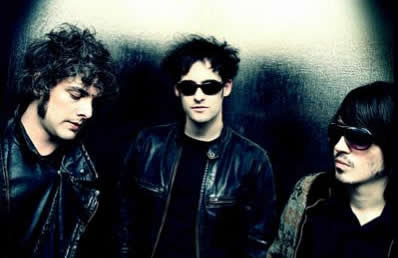 You can tell their passion for music by seeing them play, and know that they are good with words from listening to their lyrics. But just passing them on a city street, you’d never know from their dark sunglasses and, yes, ubiquitous black leather jackets that the guys of Black Rebel Motorcycle Club are thoughtful, well-spoken and articulate, and also some of the best interviewees that I’ve yet had the pleasure of chatting with.
You can tell their passion for music by seeing them play, and know that they are good with words from listening to their lyrics. But just passing them on a city street, you’d never know from their dark sunglasses and, yes, ubiquitous black leather jackets that the guys of Black Rebel Motorcycle Club are thoughtful, well-spoken and articulate, and also some of the best interviewees that I’ve yet had the pleasure of chatting with.
Peter Hayes and Robert Levon Been were friends as teenagers in the San Francisco Bay Area (yay!). Robert is from the Boulder Creek/Felton area as a kid, and Peter spent his teenage years all over the East Bay – Concord, Daly City, Oakland, Lafayette. The guys met in high school, shortly after Peter had just gotten out of the morale-shattering tumult of the Brian Jonestown Massacre.
Along with drummer Nick Jago, a transplanted Brit, they decided to form a band and first played together in 1998. Their original name was The Elements, but after a few months they changed their name to Black Rebel Motorcycle Club, taking the moniker from Marlon Brando’s group of young ruffians in the 1953 movie The Wild One.
The nascent BRMC recorded a demo album independently in 1999 which quickly circulated and generated a buzz at home and abroad. Owing to the energy of their live shows, the quality of their songwriting and perhaps the impressive range of influences that echoed some of the best sounds of decades past, they were signed by Virgin and their self-titled debut album was released in 2001. After their Screaming Gun EP of b-sides that same year, they’ve been pretty regular in offering a release every two years — Take Them, On Your Own in 2003, the folk/blues/acoustica of Howl in 2005, and the anthemic haze of this year’s Baby 81.
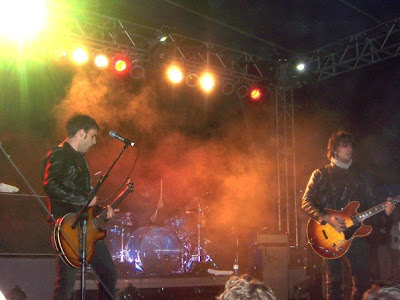 Before they rocked the Monolith Festival last weekend, Peter [guitar/vocals] and Robert [bass/vocals] took a good chunk of time from their grueling pre-show demands (mostly drinking Red Bull I think, and doing other interviews) to sit down at a little table backstage at Red Rocks with me to talk, in-depth and from the heart, about music.
Before they rocked the Monolith Festival last weekend, Peter [guitar/vocals] and Robert [bass/vocals] took a good chunk of time from their grueling pre-show demands (mostly drinking Red Bull I think, and doing other interviews) to sit down at a little table backstage at Red Rocks with me to talk, in-depth and from the heart, about music.
BLACK REBEL MOTORCYCLE CLUB INTERVIEW
I’d be remiss to not note your awesome roots in the Bay Area. As a San Jose girl myself, I have to ask — do you ever miss things about the Bay Area now that you’ve left for the shining shores of LA? Those great venues like The Fillmore or the Purple Onion …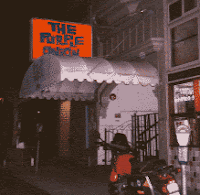 Robert: Purple Onion! Yeah, we played the Purple Onion lots of times. You know Tom? That crazy fucker? He was that eccentric owner. He’d introduce the bands, and he called us the Black Leather Jacket Gang when we first played there. Couldn’t get the name right. Or he didn’t wanna get the name right.
Robert: Purple Onion! Yeah, we played the Purple Onion lots of times. You know Tom? That crazy fucker? He was that eccentric owner. He’d introduce the bands, and he called us the Black Leather Jacket Gang when we first played there. Couldn’t get the name right. Or he didn’t wanna get the name right.
Peter: (in a nasally voice) “You’ve got the coolest name ever man! Black Leather Jacket Gang, that’s awesome!“
Robert: I think it was the first time we were ever announced . . . we were called The Elements for about nine months and then we changed it. And that was like our first gig as Black Rebel Motorcycle Club, and aw, they just took a piss with it. Definitely it was a scary name to try and introduce.
It helps to have a good name, a lot, but that’s all stuff you’ve probably read about. There’s just a lot of great history with that film that we kind of ended up learning later. I mean, it was the first real [depiction of] what rock and roll took, like kind of the spirit of it and the imagery. I mean The Beatles got their name from it –maybe– and Elvis took, you know, his whole look from a lot of it. It’s a kind of campy film, but in its time it was a really edgy cool thing.
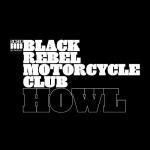 Since you are here in Colorado, I wanted to ask you about an article I read that cited the “beat poet scene of Denver” as one of your influences. Now, other than sharing the title of an album with the Allen Ginsberg poem (Howl), is there a direct influence of his work in your music?
Since you are here in Colorado, I wanted to ask you about an article I read that cited the “beat poet scene of Denver” as one of your influences. Now, other than sharing the title of an album with the Allen Ginsberg poem (Howl), is there a direct influence of his work in your music?
Peter: As far as the beat poets themselves and all that – I’m not real schooled on that stuff and we don’t have a whole lot of knowledge of who lived where. But from my understanding –could be absolutely wrong– the beat generation (even though they didn’t want that label, just as the label of rock and roll isn’t something you necessarily want or look for), they were talking out and speaking against things that they felt the need to speak out against and speak up.
So yeah, we’re fans of that. Not sure if they were the first – you know there were other people before that . . . I mean you can even call Jesus a rebel and a revolutionary. But we’re into that thought, and getting back to that idea and ideal of living.
So the title of your album was a direct nod to that?
Peter: It was a direct nod to that idea, which is speaking out against whatever you feel the need to speak out against.
Robert: And also that album is heavier on the lyrical side and poetry side. Some of the songs were poems before they were songs, and then they were . . . that thing of hoping that poetry could be more present in rock and roll music, and just the fantasy that there’s something more to say than what maybe it’s being used for a lot of the time.
I find it interesting how a lot of critics couldn’t seem to conceptualize how Howl fit in with your “sound.” There was all this commotion about how different it was from your first two albums. Was that hard for you guys why people couldn’t just, I don’t know, allow different kinds of music to come out of you without having to extrapolate out what this meant for your sound or your career?
Robert: I like the tug and the pull, and I like that that was put on the table, because it’s something that people should talk about, you know, why musicians and bands aren’t more free to be musicians and to experiment and do more, and just the fact that it was a shocking thing to discuss, “Who wants this sound? Who wants that?” I think it’s good to have that example for other bands to push things, but it’s also a shame.
We were nervous about it for sure because we knew the reality of the music business today; it’s about repeating one thing over and over again, and make as much money doing it as possible. We weren’t sure of the fans who loved us would want anything to do with us after Howl. Turns out that wasn’t the case, there was really strong support for the most part. That was a really, really nice feeling after being nervous for such a long time. Before we even started recording it, it was in the back of our mind, you now, just because we love it doesn’t mean anyone else will love it. But it ended up working out really well in the end. It was a good reminder to trust the passion of music.
Peter: It was a surprise and it is a sign that the state of things is not good, it’s a sad thing that it was even such an issue. It should be kind of obvious for anyone, we all want to express our freedom, and that’s all it should be taken as. If you like it or don’t like it, so be it.
Robert: We had to be really honest with ourselves though – there’s a lot of bands I love that had done the kinda “different” record, the experimental record, where you could tell that the band loved that sound or that style, but that they couldn’t quite make it work or pull it off. So their heart kind of got in front of their ability to actually really make something worthwhile. So, I think that’s why we waited so long – that record wouldn’t have been so good if it came out as our first or second album, we needed time to grow up and write better. I think if we’d gotten too excited and wanted to do something free and different without any holding ourselves accountable . . . I think we really needed to hold ourselves accountable.
Robert, you’ve said “People forget that the ‘roll’ is as important as the ‘rock'” and Peter, you’ve said that you are continuing to write a growing stash of new acoustic tunes. Do you think you’ll do another full album in the Howl vein, or integrate the folksy, bluesier stuff along with the rockers next time around?
Peter: I don’t know if this is possible, but when I think of albums, I think of a soundtrack, where you create a work with, say, an acoustic song next to a wall of guitars, just noise, no singing at all, next to a song that’s punky, whatever you want to call it. That to me is what makes sense. We’ve always been tryin to dodge the “Well, they sound like that . . . they sound like this,” – I want to be able to include all those types of music on an album and have that make sense. I think that would make sense to our fans. But I don’t really know! It’s hard to really talk about because to each his own, really.
I mean, a lot of people don’t like Howl. A lot of our fans didn’t like Howl. A lot of our fans really loved it. A lot of people got really turned on by it, a lot of people got turned off. A lot of people hate this one because they loved Howl. But what’s amazing is that we’ve made music that has turned people off and turned people on and we’re the same fuckin band. You know what I mean? That’s cool. We haven’t grabbed one big huge chunk of people that want that one sound – that to me is great. It’s up to the listener to be open to it, it’s not our job. Our job is just to do what the fuck we want in playing music, and it’s up to people to have ears to listen and be open to new things. It’s not our job to tell people how to hear.
Robert: I’m surprised more people don’t go along with the ride, as it should be. They’re very judgmental, quick to decide. I hear a lot of people talking and ranking, you know, “I like this one better than this one, which isn’t quite as good as that one.” But they’re all coming from the same place? So I don’t know why it’s . . . I mean they’re all good and bad for different reasons, but they’re all The Ride. Why not just enjoy the ride? It’s like being all uptight during the ride, like [scrunches up shoulders] “I don’t like this dip in the road right now.” But no, there’s this really cool turn coming right in a few seconds.
I agree with everything Pete is saying, especially the soundtrack idea as being the highest thing to achieve, something that emotionally can go from one extreme to the next, but kind of not be too tied down to one thing. That’s the only way you can keep a consistent kind of forward motion. But then again I don’t want to say what the next one’s gonna be because I don’t want to have that much control over it. I mean, whatever’s gonna come is not going to be really up to me so much, or Pete, or Nick, individually, but we all kinda let go of the wheel.
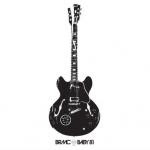 With Baby 81, if we thought about it too much we would have probably gone crazy: “What are we gonna do after this record that was so different?” And then thankfully Nick came back and we did “Took Out A Loan” and “666” in one day, one take. No one was talking, sayin a fuckin word, it just happened. We followed that and made ten more songs like it. I don’t know — that’s the most natural and innocent the music can be, and that’s our job to let the music be that. It can be a natural extension, something that’s not too conceptualized or pulled in one direction because your head wants it to go there and your heart wants it to go someplace else. And we’re the only ones that can get in the way of that, you can blame other people, but it’s you allowing it or not.
With Baby 81, if we thought about it too much we would have probably gone crazy: “What are we gonna do after this record that was so different?” And then thankfully Nick came back and we did “Took Out A Loan” and “666” in one day, one take. No one was talking, sayin a fuckin word, it just happened. We followed that and made ten more songs like it. I don’t know — that’s the most natural and innocent the music can be, and that’s our job to let the music be that. It can be a natural extension, something that’s not too conceptualized or pulled in one direction because your head wants it to go there and your heart wants it to go someplace else. And we’re the only ones that can get in the way of that, you can blame other people, but it’s you allowing it or not.
Like the next record, I was actually thinking . . . I’m curious to hear what we’d sound like if we took a little time to let things evolve because we haven’t done that for awhile. We’ve done all records pretty fast, just kinda pushing to finish the next one and the next one. So I’m just curious to hear what we’d sound like with time to let things breathe and kind of come around in their own time.
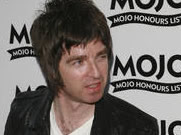 I wanted to talk a little bit about your perceptions of the British media feeding frenzy throughout your career, and specifically the early buzz Noel Gallagher generated for you when he told MOJO magazine that you guys were his favorite band, and he wanted to sign you guys to his own [Brother Records] label. That must have been a bit crazy for you. Did you ever consider taking him up on it?
I wanted to talk a little bit about your perceptions of the British media feeding frenzy throughout your career, and specifically the early buzz Noel Gallagher generated for you when he told MOJO magazine that you guys were his favorite band, and he wanted to sign you guys to his own [Brother Records] label. That must have been a bit crazy for you. Did you ever consider taking him up on it?
Peter: We considered it only to the point that we didn’t want to be anybody’s band. We didn’t want to be a record company’s band, or a guy at the record company’s band. That was the only reason we didn’t follow that up because we wanted to stand on our own. We don’t belong to Virgin [who they eventually signed with] and we don’t belong to who we’re with now. They don’t own us. Record companies make your lives a little bit easier, as far as, you know, you’ve got your rent paid. They make your art a little bit harder, but they make your life a little bit easier. [laughs heartily]
None of that really sunk in for me with though [with Noel Gallagher]. I was never that big of a fan — I became a bigger fan, but at first I didn’t understand it, it’s not for me. But then I went over there and I saw that it was for a huge amount of people, a lot of people loved it. So I give them respect, it touched the people somehow, I’ll give that to them absolutely. I respect that.
And it was nice of him, you know, him saying that? A lot of people would come to us and say, “I heard about you through Noel Gallagher,” and that’s amazing, that’s lovely to have. That feels like a community of artists, as far as someone who is at that level saying, “Check these guys out, I like this” – Having that is great, we try to do the same thing now for bands that we like. So that, in itself, that is how it’s supposed to be.
Robert: Music just carries a bigger weight in [British] society or culture, at least for the time being, and it has for awhile. It’s the good and bad that come with that. You know, people’s voices are heard and the media is stronger, and it’s a community that’s actually . . . can be inspiring and infuriating at the same time. But I’d rather have that than just a kind of place that doesn’t care so much, where music doesn’t really matter so much. The States kind of feel like that — there’s lots of places that have it a lot worse, but music’s not as built in to the [U.S.] network as far as the culture. They’ve got a ton of, say, television shows over there [in the UK] that are constantly showing different bands playing and there’s only a few over here.
Peter: It’s amazing, they have so much crap over there, and you know, they gave us a lot of their crap, as far as “Who Wants To Be A Millionaire,” or “Who Wants To Be The Next Pop Idol.” That all started over there … but it’s all bullshit! But it seems like our filter in America is just like, “Oh let’s just take the shit. The nonsense.” But over there they also have another side of it, that they have a good side too, they have both sides. Over here it’s weird how we siphon out the good stuff and just go for the shit. I don’t know why we do that.
We’ll make the last question massive. Do you see art and commercialism as being fundamentally at odds?
Robert: Oh, God. Well the question isn’t that hard to answer. We’d all want to live in a place where it wasn’t a music business, it wasn’t a film business, it was just people making music, making films, and it was their art form and it wasn’t controlled and tampered with by all these other elements. But the long answer to your question is how do you blend the two together in a world where you have to. We could be here for a while. [both laugh]
Peter: Your question is, are they fundamentally at odds? Fundamentally, yes. Money gets in the way of all of it. They don’t belong together . . . [pauses] . . . but it’s okay? I think it’s okay that it does? Kind of? [laughs] Because good things can come from money, I guess, because the world has decided to live that way.
Robert: It is kind of that ‘asleep at the wheel’ mentality. It’s not the industry itself, but the bigger society around it that’s – it’s the byproduct of society, not the other way around. It’s a Catch-22. No one really knows why some people settle for just sleepwalking, but it affects music and everything else.
I’ve always been kind of naïve or youthfully angry and rebellious against the music industry. You know, all those beginning thoughts you have when you’re like, “Fuck corporations, capitalism,” all that. But then T Bone Burnett was talking to us and he’s a good guy with a good heart. He was talking to us about trying to buy Sun Records and relaunch it and do it the right way and get the right people behind it, and for one glimpse I was truly inspired by that idea of that record label. We were just finishing Howl and he wanted to bring us on if it went through.
I was really excited about getting behind a brand that meant something. My imagination started sparking as far as I would want to make different great music and videos to represent this label and help it become what it would want to become, for the albums to have the same strength.
When you sign to a major label, the mentality can just kind of be “I wanna get mine, and get out,” in a way. It’s a survivalism thing that has nothing to do with connection to other people. But talking to him, I just got this vision that a label could be a beautiful, inspiring thing and I never even had a glimpse that that could be a reality, kind of growing up with labels that were always deemed the enemy or the devil, something you constantly had to fight against to keep your sanity and your art intact. That’s not the way it should be, and it doesn’t have to be. You realize, wow, we’re a long way from what could be, and yeah the music suffers from there on.
Peter: What’s frustrating is that you make a record –tons of bands do, you make art in a way you consider to be art of some sort– and you put it out and if it doesn’t do well, all of a sudden there’s no longer any support for you. And that’s a shame. I think government should be funding the arts – I guess Canada does it a bit, they cherish and take care of art and nurture it in a way. That’s unbelievably cool. Here we nourish those who’ve made it, and if you can’t be proven to have made it, you’re left by the wayside. So that’s wrong. That’s just wrong, that’s destruction of our culture.
And by following what you love, what you believe in, you have to be careful because your love can change. Next thing you know, your love turns into money. You know, this “I love what my music can get me.” Almost to a point of self-destruction, we’re so afraid of turning into that little asshole, you know? We’re like, is there money involved? Well make that go away. Make sure that goes somewhere else.
Robert: Just to finish that thought, it’s similar to what I was saying earlier about the label. It’s kind of trying to get away from self and not having it just be about ourselves and making money, but about the bigger community. Even when I’ve looked at, okay, you could make an indie label, stand for something new, get a bunch of great bands together and go really far. But you just know in the back of your mind, if you actually do make enough money it’s bound that it’s gonna be sold out from under you because someday it’s just gonna be an offer someone can’t refuse. You can’t even follow that dream because you know how it ends. . .
* * * * *
Pete pulls out a lighter from Cleveland brandished with ‘Rock N Roll’ and a red electric guitar on the front. With a self-effacing laugh, he points it out, and says, “See? Put a little stamp on a lighter. And that’s rock and roll.”
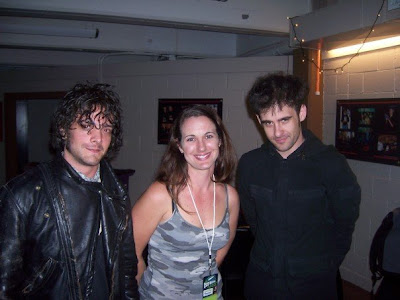
LISTEN: BLACK REBEL MOTORCYCLE CLUB
BENICASSIM, SPAIN – 7/22/07
RADIO 3 BROADCAST (it adds atmosphere, and lets you practice your Español)
Berlin
Stop
Spread Your Love
The Show Is About To Begin
Six Barrel Shotgun
Ain’t No Easy Way
Weapon Of Choice
Whatever Happened To My Rock ‘n’ Roll
Need Some Air
American X
All You Do Is Talk


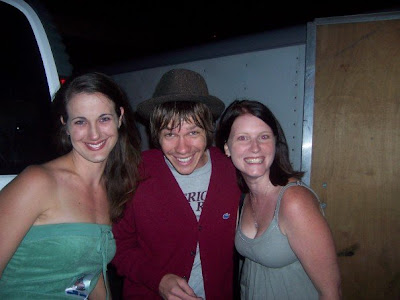 [Me and Nate and my friend Jill after the show]
[Me and Nate and my friend Jill after the show]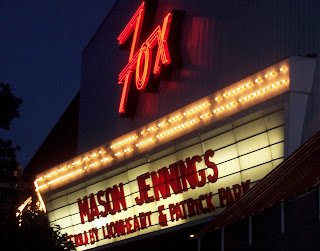
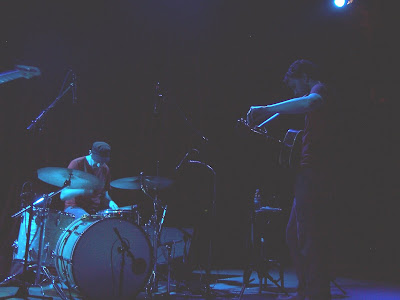
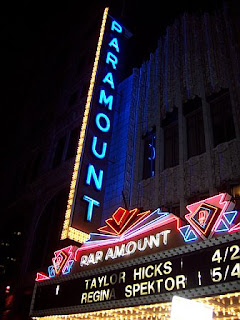
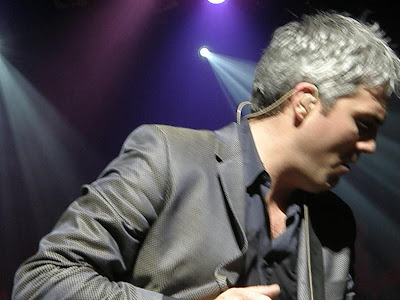 A CONVERSATION WITH TAYLOR HICKS
A CONVERSATION WITH TAYLOR HICKS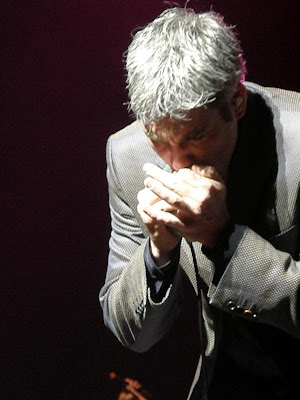
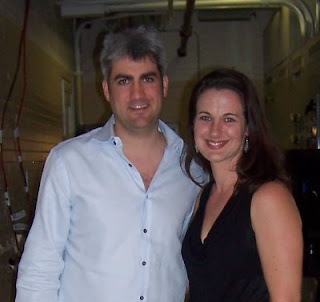
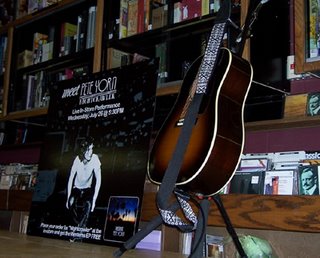
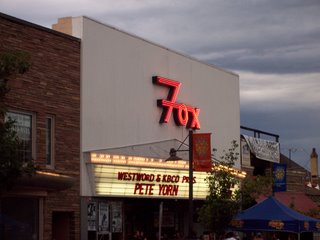
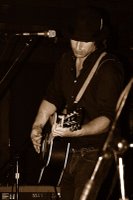
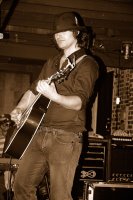
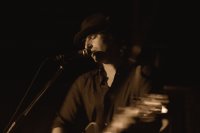
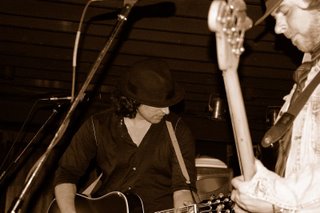

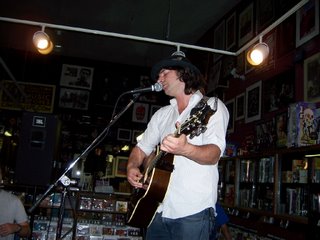
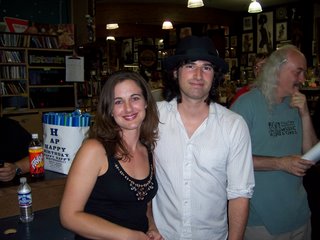

 Roger Clyne is one of the hardest working artists in rock ‘n’ roll, and he isn’t tired of it yet. The independent model for the operation of his current band
Roger Clyne is one of the hardest working artists in rock ‘n’ roll, and he isn’t tired of it yet. The independent model for the operation of his current band 

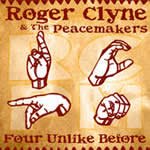


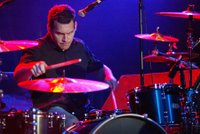


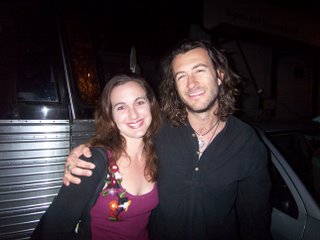

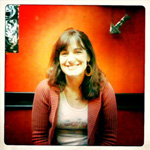 Name: Heather Browne
Name: Heather Browne